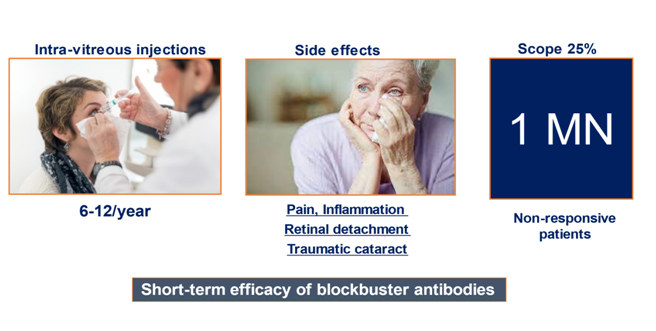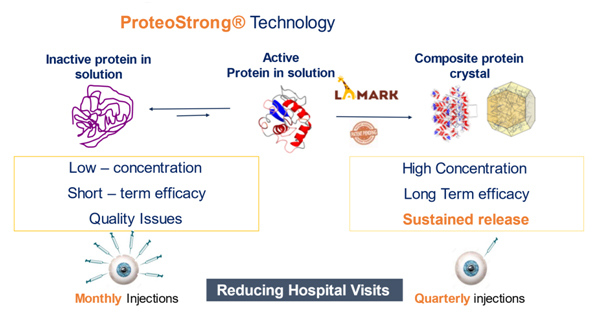Introduction
Macular degeneration, often known as age-related macular degeneration (AMD or ARMD), is a medical condition that usually affects older adults and results in a loss of vision in the center of the visual field (the macula) because of damage to the retina. It majorly affects people who are older than 50 years of age. The specific area of impairment would be in reading and writing, emotional wellbeing, doing household tasks, mobility, and affecting their overall independence .Your macula sits at the back of your eye, and it’s largely responsible for your sight. The sensitive tissue relies on a deep network of nourishing blood vessels. Sometimes, the body grows too many of them, and they weaken and bleed. That condition is known as wet macular degeneration(AMD).
Lucentis or Avastin is made to treat it. It blocks your body’s ability to create too many eye blood vessels. It’s delivered via injection into the eye, and some people need up to 12 of these shots every year. During this treatment, your doctor numbs your eye and props it open (so a blink can’t ruin the procedure). Your eye should not hurt, but you may experience some pressure. Common side effects include red eyes, nausea, and speckles in your vision, pain, inflammation.


Problem
Avastin (bevacizumab) and Lucentis (ranibizumab injection), two widely used drugs to treat age-related macular degeneration (AMD), improve vision when administered monthly or on an as needed basis, although greater improvements in vision were seen with monthly administration for this common, debilitating eye disease, according to researchers supported by the National Institutes of Health.
It blocks your body’s ability to create too many eye blood vessels. It’s delivered via injection into the eye, and some people need up to 12 of these shots every year.
During this treatment, your doctor numbs your eye and props it open (so a blink can’t ruin the procedure). Your eye should not hurt, but you may experience some pressure. Common side effects include red eyes, nausea, and speckles in your vision, pain, inflammation.


Solution
At Lamark we offer sustained release anti-VEGF biosimilar with higher concentration, that also requires only quarterly injections for the treatment.
- Reduction in dosage frequency (once in 3 months) validated by Pharma clients.
- Novel molecule co-developed with Satt-Lutech and Vision Institute will address the needs of 1Mn non-responders (a conservative estimate) who have no alternative to blindness..
- Less invasive approach and does not require any special training for ophthalmologists like for PDS from Roche.
- Potential to be global, as storage requirements are frugal and Asia has unorganised healthcare.


